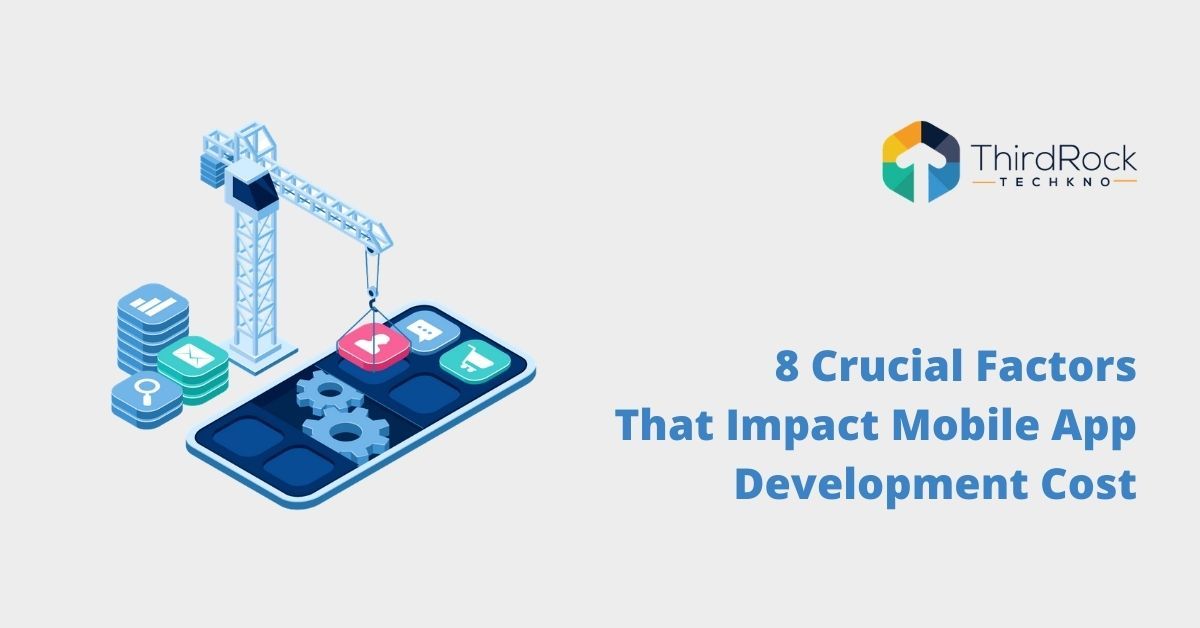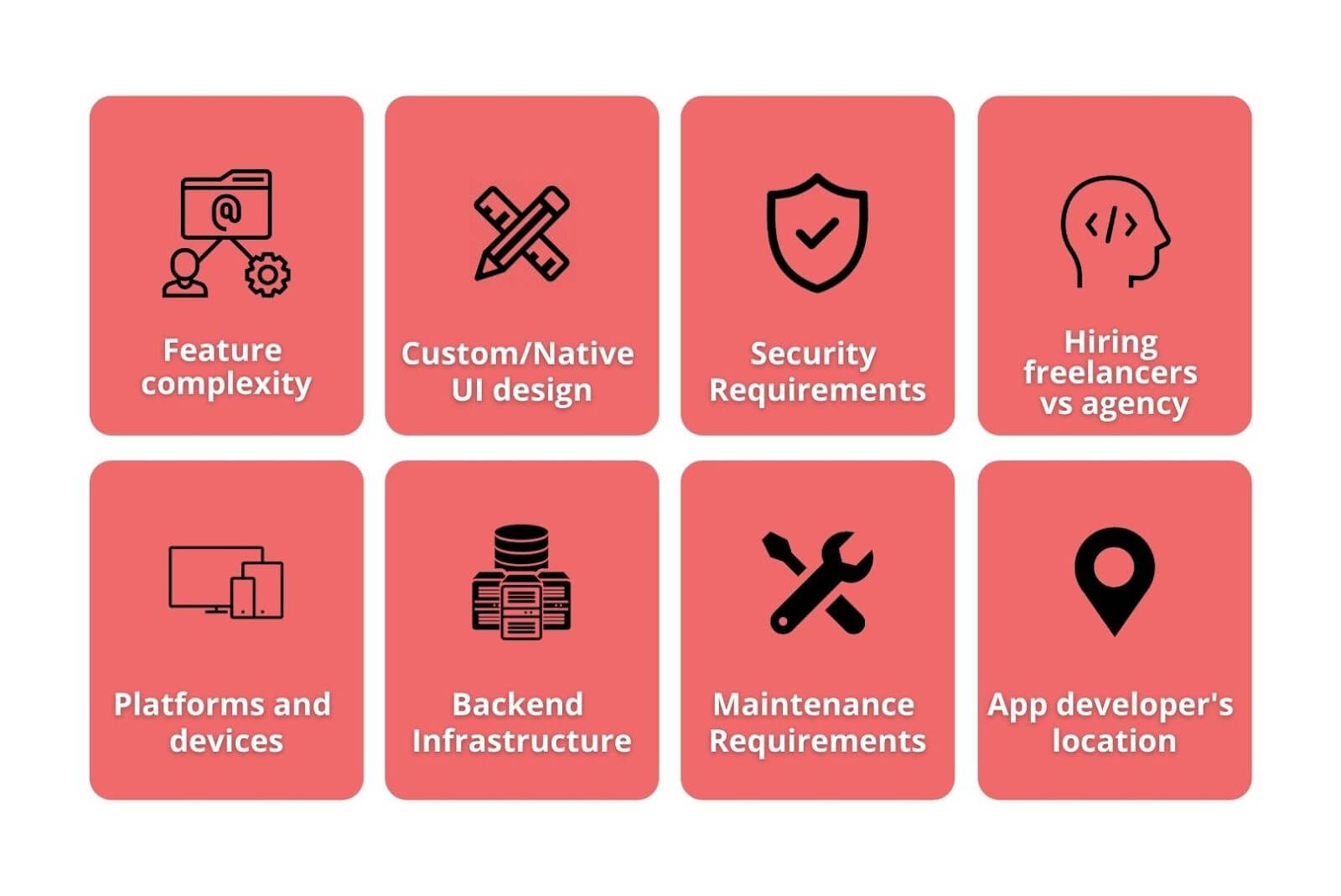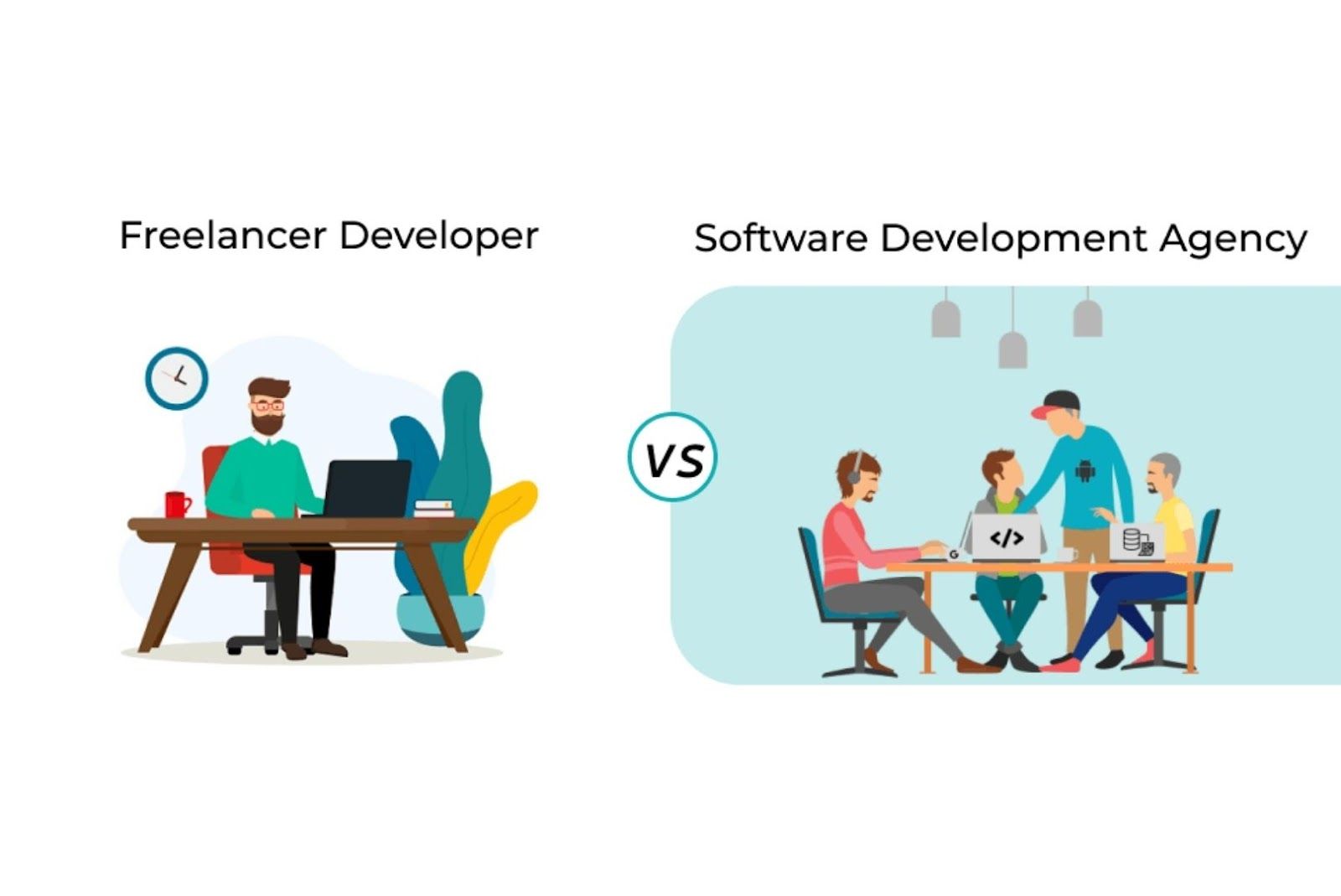
If you have landed here, you have likely finalized your app idea and are all set to invest in building one soon. You must also be aware that building and launching an app isn’t an easy task; it requires technical expertise and more importantly, industry awareness to optimize the costs of creating a mobile app. As a CTO of a leading app development company, I am here to share my lessons gained over a decade and help you determine the factors that impact custom mobile app development cost.
Table of Contents
But before we dive into the costs, it’d be nice to also keep in mind the kind of revenues mobile apps generate in 2021.
Table of Content
Key Factors That Influence Mobile App Development Cost
Cost of building simple to complex features in a mobile app
Cost of developing a mobile app for Android vs iOS
UI/UX design factors that impact app development costs
Backend infrastructure requirements of mobile app development
Mobile app development security requirements
Costs to maintain a mobile app
Costs of hiring a freelance developer vs a software development agency
Location of your app development partner
The Bottom Line
Statista published a report on Mobile App Revenue Forecast earlier this year. The revenues generated by mobile apps in 2020 alone amounted to 581 billion US dollars globally. By the end of 2021, it is estimated to cross 693 billion US dollars!

Image source: Statista
These numbers speak volumes of how lucrative building a mobile app can prove to be for businesses. Hence, it’s wiser to keep things in perspective before you determine your mobile app development budget.
Let’s understand how the entire development cost breaks down into different categories and what are the important factors influencing mobile app development cost.
Key Factors That Influence Mobile App Development Cost

1. Cost of building simple to complex features in a mobile app

The major factor impacting the cost of building a mobile app is the feature set you want to add to it. If you are building an app with very basic features, your development team will require fewer hours to build them, and hence, the cost of development will be less.
On the other hand, complex features in a mobile app require more development time. This, in turn, leads to higher app development costs.
What kind of features exactly fall in the simple category and which ones should you consider complex?
If you are building a mobile app for the users to engage, it should have a set of features that are core to the app’s functionality. In most cases, a mobile app is not really a user-centric app if it doesn’t have the following features:
User registration/log in
Profile completion/editing
Search
Basic customer support chat
Basic admin panel
Analytics.
A mobile app with the above feature is most likely a simple mobile app. Building these features collectively takes approximately 3-5 months.
On the other hand, a more complex app will include features like:
Push notifications
Geolocation
Ads
Audio or video streaming
Payment gateway
Personalization based on user data
Offline mode
Chatting
Advanced analytics
Connectivity with external devices
Third-party integrations (like login with Facebook, pay with Paytm)
Based on the number of features you include in your complex app, the costs will keep going higher.
That is why it’s vital that you understand your target audience and streamline your app goals. Only then will you be able to prioritize the right features and reach the equilibrium for mobile app development cost.
2. Cost of developing a mobile app for Android vs iOS

When you do decide to build your app for either Android or iOS, the custom mobile app development cost will carry a slight variation.
The little discrepancy in Android vs iOS app development cost is because of the programming languages used to build the app.
For building an Android app, you need to hire developers that are proficient in working with Java or Kotlin. On the other hand, iOS app development requires coding using Swift or Objective C languages.
Java developers charge 10-15% less than Swift or Objective C developers.
Secondly, the scope for device fragmentation is much wider for Android apps vs iOS apps.
Hundreds of different mobile devices with different screen sizes are supported by Android. On the other hand, iOS comes with at most 20 different types of devices and OS versions.
So if you build an Android app, you will have to adapt it to different fragmentations, and hence, the Android app development cost will be a bit higher.
Moreover, testing for all the different versions of an Android app will also add to the costs.
If you are fairly familiar with app testing methods, you’d know that testers use emulators or simulators of mobile devices on their desktops in order to test a mobile app. Now the problem is, Android emulators perform much slower than iOS simulators.
So the amount of time spent on Android app testing will be higher than iOS app testing. More development hours means higher cost.
However, if you choose to adapt your Android app to a handful of the most commonly used devices, you can keep the development as well testing costs in check. And then, the cost of building an Android vs iOS app will more or less be the same.
Pro-tip for optimizing app development costs: Using a cross-platform framework like Flutter, your team can reuse the same chunk of code for building both Android and iOS apps. With Flutter, the app development cost can go down by up to 40%, if you want your presence on both Android and iOS phones.
3. UI/UX design factors that impact app development costs

The UI design is the face of your mobile app and the UX design is how the user will engage with your app. Thus, app design is one of the most crucial factors of the success of a mobile app.
The cost of designing a mobile app is influenced by a lot of factors.
For example, the number of screens that will go into your app will directly impact the hours of work a designer will have to put into. Secondly, what kind of screens you want your app to have? Do you want to include modern graphic elements in your UI and ease the UX with lots of animations?
If yes, then that would be added to your mobile app development cost.
However, the most important consideration here is whether you want to go for native UI design or a custom UI design for your app.
Native vs Custom UI design
Native UI design is when the designer uses the readily available templates and UI elements for Android and iOS development. You can choose the UI elements from a number of libraries with different design patterns and solutions.
On the other hand, a custom UI design refers to designing the UI elements of an app from scratch. The app designer first creates the design architecture and then creates unique elements that fit that architecture.
A custom UI design facilitates distinguished user experience and solves navigation problems effectively. On the flip side, it increases your development cost and requires extra effort to ensure design accessibility.
A native UI design is generally considered to be more familiar from the user’s point of view and is also lighter on the pocket. But, it may not give your mobile app a distinguished brand identity and often encompasses a limited set of features.
It ultimately comes down to your business goals and the expectations of your target users.
4. Backend infrastructure requirements of mobile app development

Backend infrastructure for a mobile app consists of software that runs on a server. It is mainly used to enable the app to communicate with data sources in order to perform the following activities:
Data storage
Analytics for data
Data sharing
Storing and updating content to display on the app
Maintaining a centralized space for the business logic that can be reused for different apps connected to this space
Now, you have multiple options to empower your mobile app with appropriate backend infrastructure.
Backend As A Service (BaaS)
There are a number of ready-made backend solutions for different kinds of mobile apps. This software is called Backend As A Service (BaaS) because you are essentially using the services of a ready product.
Firebase by Google and Mobile Hub by AWS are two examples of prominent BaaS tools available in the market today.
BaaS software is very easy to set up and it can get your mobile app up and running in a very short span.
However, there is very little scope to customize the backend of your mobile app if you host it on a pre-built BaaS software.
Using a Cloud Server
If you want the backend of your app to be more flexible, your best option is to create a custom backend infrastructure and host it on a cloud server. Google App Engine and Amazon AWS are the two most popular cloud servers that large companies rely on for hosting their backend infrastructure.
Creating a custom backend for your app and hosting on a cloud empowers you with a lot of scope for customizing your app. Moreover, because you own this backend infrastructure, you can move it to another cloud server based on your changing needs.
However, as you might have guessed, building a custom backend costs a lot more than using BaaS. At this point, it makes sense to consult an expert mobile app development company to decide whether you should go for BaaS or host your backend on a cloud server.
5. Mobile app development security requirements

A mobile app performs various functions that may include the collection and storage of user or admin data. Any breaches in the security of this data can result in permanent damage to the reputation of your business.
That is why security practices may make up a considerable chunk of your mobile app development cost.
Based on the scale of your app and the kind of user engagement it asks for, your app development partner can recommend the most important security best practices.
Multifactor authentication is one task that every mobile app should ideally do to ensure data protection. Moreover, if your app is also provisioned for saving passwords and other sensitive data, implementing a tight cryptographic algorithm also becomes a necessity.
Conducting data sanity checks and building versatile threat models are also commonly followed app security best practices.
Ultimately, based on your app type and intended user interaction, you can choose the right set of security best practices for your app and optimize your development costs.
6. Costs to maintain a mobile app

As long as the app is out there in the market, you will have to keep maintaining and updating it.
Software products can be very unpredictable and no vendor can ever deliver a solution that won’t encounter bugs at some point in the future.
So as an app owner, you will need regular technical assistance from professional developers to ensure the smooth functioning of your app.
Moreover, the environment and the technological ecosystem that your app functions in are always evolving. Regular app maintenance is crucial to keep your app relevant in the changing software landscape.
While determining mobile app development cost for your project, you can account the expenses for the following standard maintenance costs:
Upgrading the mobile app to the latest OS versions
Upgrading the third-party integrations (used for app development) to their latest versions
Identifying and fixing bugs
Along with that, you might also need to take care of the following advanced app maintenance tasks:
Adding new features and functionalities
Updating the tech stack with the latest technologies
Scaling the app architecture
Switching to bigger or better servers
7. Costs of hiring a freelance developer vs hiring a software development agency

Once you have decided on all the above technical factors that impact your mobile app development cost, it’s time to make a major decision.
Should you hire freelancers or should you hire an app development agency?
Despite keeping everything else the same, this choice alone can potentially increase or decrease your cost to develop a mobile app significantly.
To keep things crisp, I’ll just take you through the pros and cons of both cases.
Pros of hiring freelancers
Low cost of hiring a freelance professional
Easy availability and flexible schedules
Cons of hiring freelancers
Responsibilities of onboarding multiple freelancers for app design, development, and testing
Project management responsibilities
No reliability for a long term commitment
No post-delivery support
Pros of hiring an app development agency
A safe, professional, and reliable association
Guaranteed NDA and other compliances
From project scoping to post-delivery support, everything is taken care of
Flexible, regular, and professional project management
Assured long term association for app maintenance and support
Cons of hiring an app development agency
Costs are a bit higher than hiring freelancers
The process may require a lot more paperwork
In a nutshell, hiring freelancers may seem enticing at first but it may lead to a lot more added costs in the future. After all, a freelancer can never guarantee the quality of output as much as a formal app development company can.
Plus, if your core job is to focus on your business growth, it’s better to free up your time by hiring an app development agency and letting them take care of the entire software development cycle.
8. Location of your app development partner

Whether you want to hire a freelancer or a company, their location plays a huge role in determining your app development cost.
For example, average hourly development rates in countries like the USA are upward of $60 or $50 in Brazil. However, in eastern countries like India, the average hourly development rate is as low as $20.
Of course, these are just the averages, the actual costs of development may vary on the basis of what kind of development partner you choose.
Overall, India provides the cheapest yet high-quality development services because of the large talent pool of STEM graduates in the country.
The Bottom Line
The factors influencing your mobile app development cost are a blend of your app’s technical requirements, the expectations of your target audience, and the long-term goals of your business. This collectively shapes the features and functionalities of your mobile app.
On top of that, a major deciding factor is whether you hire freelancers or a software agency as your app development partner. While hiring freelancers may seem cheaper at first, you have to consider the long-term cons of it while making the decision.
If you do decide to team up with a professional app development company from countries like India, you can still keep your development costs in check while ensuring the superior quality of the deliverables.
Third Rock Techkno is a leading mobile app development company in the US. With an offshore office in India and a talented team of consultants, developers, testers, and project managers, we have delivered outstanding apps to a diverse clientele and earned great testimonials from them.
To take a look at our previous projects, check out our portfolio of mobile apps here.
Build Your MVP The Right Way
We specialize in minimizing development costs and prioritizing features that increase customer acquisition.
Get a free cost estimation for your project

